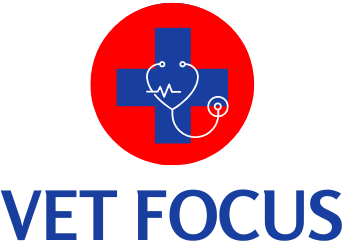As responsible pet owners and caretakers of various animal species, it's essential to provide them with the best possible care, and one crucial aspect of their well-being is their diet. Just as humans have different dietary needs based on their age, health conditions, and activity levels, animals, too, require specific nutritional plans tailored to their unique requirements. In this blog, we'll explore the world of veterinary diets for different types of animals, delving into various subtopics to help you better understand the importance of customizing their nutrition.
Canine Cuisine
Dogs are beloved companions, and their dietary needs vary widely based on their breed, size, and age. Veterinary diets for dogs come in various formulations, including weight management, joint support, and even prescription diets for medical conditions like kidney disease or allergies. Consultation with a veterinarian can help determine the best diet for your furry friend.

Feline Feasts
Cats are known for their finicky eating habits, but they, too, require specialized diets. Veterinary diets for cats cater to specific needs, such as hairball control, urinary health, and dietary management for conditions like diabetes or obesity. Proper nutrition can help prevent health issues in these independent felines.
Equestrian Essentials
Horses, as majestic and powerful animals, have unique dietary requirements. Veterinary diets for horses consider factors such as age, breed, and activity level. Nutrition plays a significant role in maintaining their overall health, supporting strong hooves, and ensuring a healthy coat.
Feathered Friends
Birds, from small parakeets to large parrots, have varying dietary needs. Specialized diets for birds include a variety of seeds, fruits, vegetables, and even formulated pellets. Proper nutrition can enhance their plumage and contribute to their longevity.
Pocket Pets' Palate
Small mammals like hamsters, guinea pigs, and rabbits have distinct dietary requirements. Veterinary diets for these animals focus on fiber, vitamins, and minerals to ensure proper digestion and overall health. A balanced diet can prevent dental issues and digestive problems.

Aquatic Appetites
Fish, whether in aquariums or outdoor ponds, rely on specific nutrition for their well-being. The type of fish and the environment they inhabit influence their dietary needs. Specialized fish food is designed to support growth, coloration, and overall vitality.
Livestock Nutrition
For those who care for livestock animals such as cows, pigs, and chickens, veterinary diets are essential for ensuring the health and productivity of the herd. Proper nutrition influences milk production, meat quality, and reproductive success in these animals.
Exotic Exquisites
Owners of exotic animals like reptiles and amphibians should be aware of the unique diets their pets require. These creatures have specialized dietary needs, which often involve insects, fruits, and vegetables. Ensuring they receive the proper nutrients is crucial to their survival in captivity.
Providing the right veterinary diet for different types of animals is not only a matter of good care but also essential for their health and well-being. Just as humans benefit from tailored diets to address specific health concerns or nutritional requirements, our animal companions and livestock deserve the same attention. Always consult with a veterinarian or an animal nutritionist to ensure that you're providing the best possible nutrition for your pets or animals, no matter their species. In doing so, you'll contribute to their overall health, happiness, and longevity.


